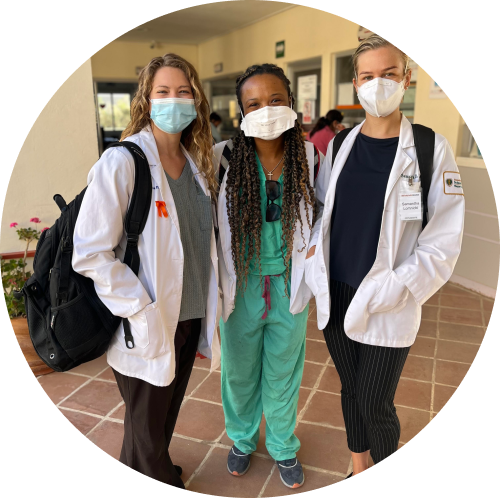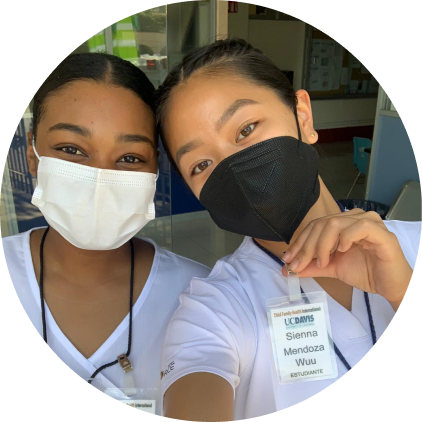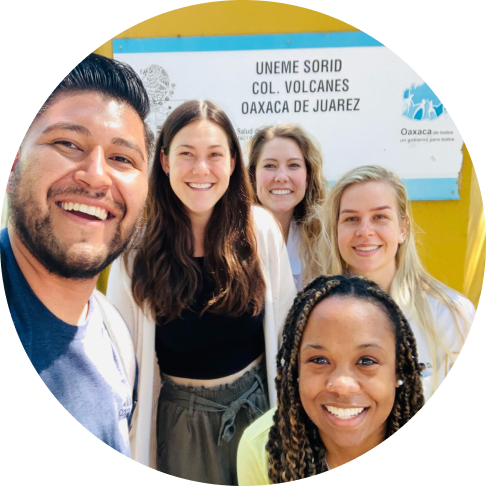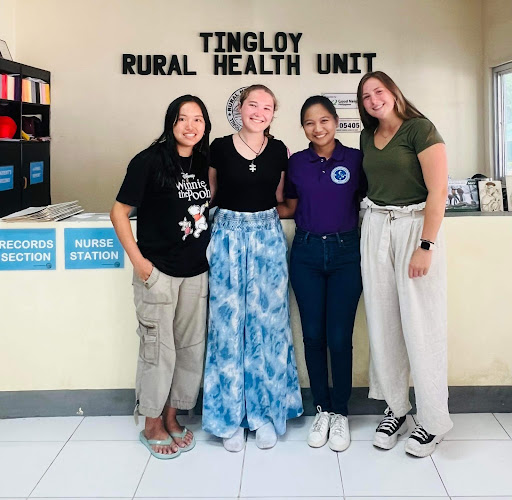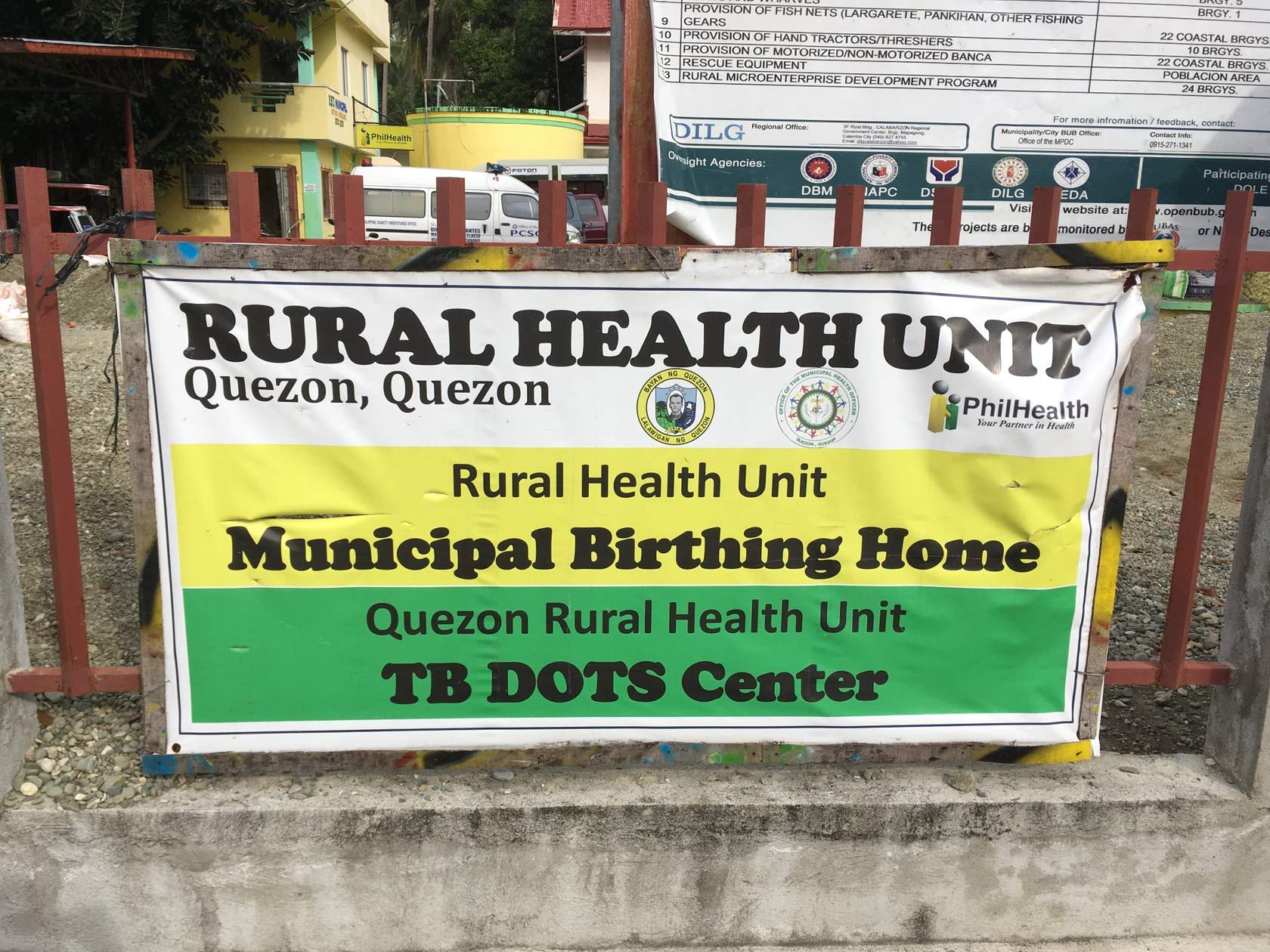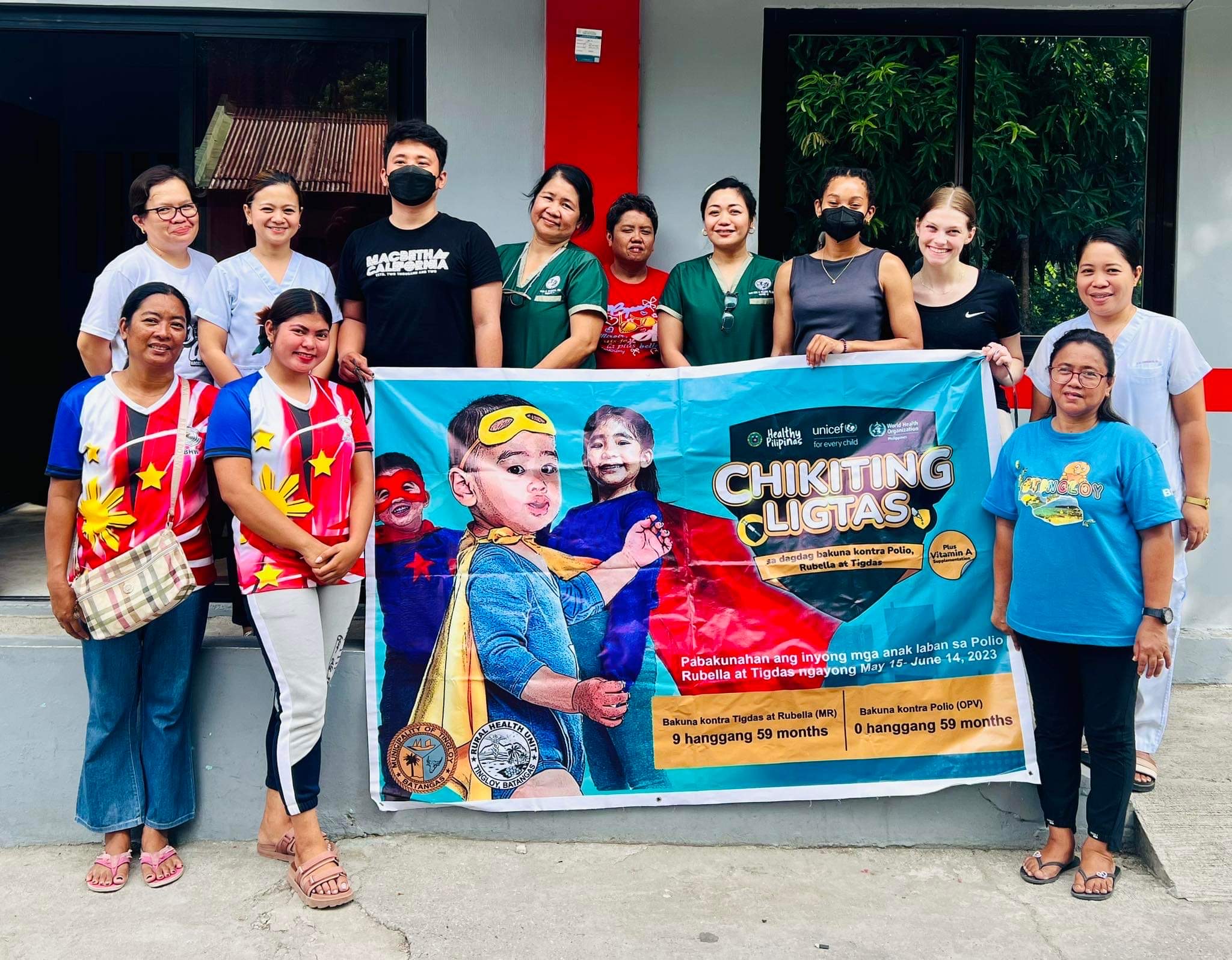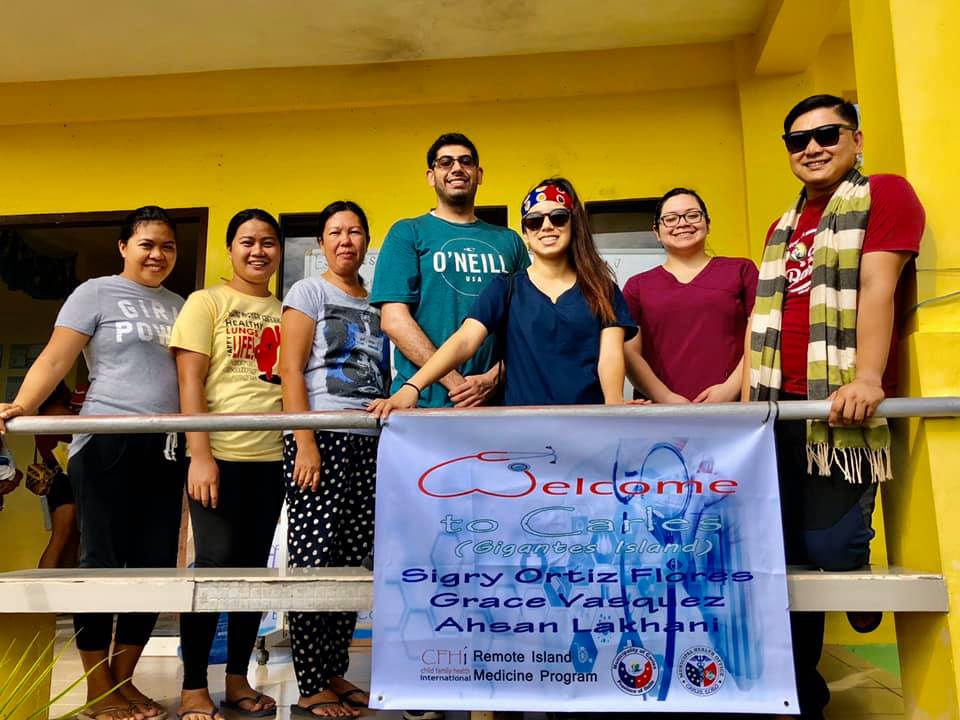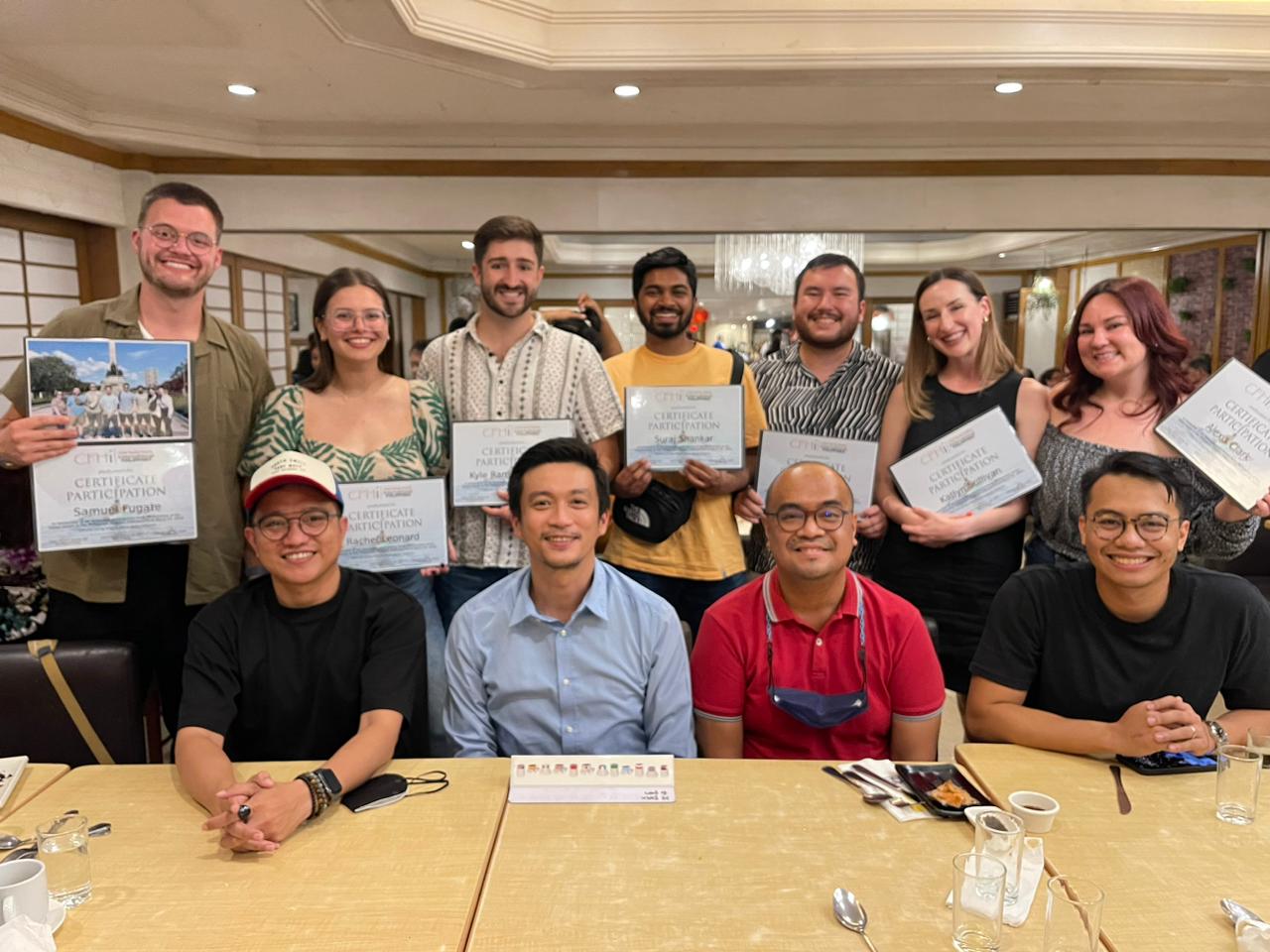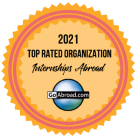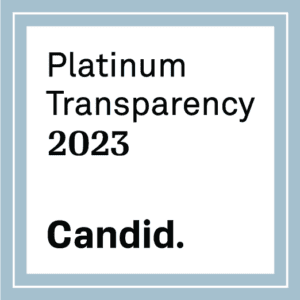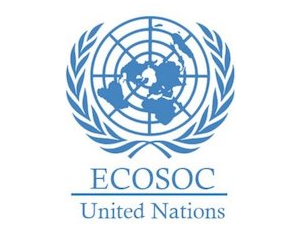- Home
- All programs
- Global Health in the Philippines
Program overview
Comprised of over 7,100 islands in Southeast Asia, the Philippines is an archipelago filled with natural beauty and rich culture. Along with its biodiversity, white sandy beaches, mountain ranges, and tropical rainforests, the country’s colorful history is filled with a unique blend of cultures. Known for their warm hospitality, contagious smiles and delicious food, Filipinos truly make the Philippines a very special country to visit.
To begin the program, participants complete a 1-week introduction in Manila. They are introduced to the Philippine health system and learn about the country’s historical and sociocultural context through interactive teaching-learning sessions, visits to public and private health facilities and cultural excursions. Participants then travel to a remote island to learn frontline health systems management from preceptors in Rural Health Units and Barangay Health Stations, including municipal health officers, nurses and midwives. Participants learn about Global and Public Health on the remote islands, also known as geographically isolated disadvantaged areas (GIDA), where healthcare facilities strive to deliver quality services while managing limited resources.
Become immersed in Filipino culture while staying in a local guesthouse or with a homestay family, interacting with the community and enjoying sandy beaches during free time. This program offers a life-changing first-hand exposure to the struggles and triumphs of local people working together towards eliminating health inequities and achieving better health outcomes for their communities.
This program is supported by the Friends of the Philippines Scholarship Fund! Learn more and apply for a scholarship.
About this program
- Location
- Accommodations
- Arrival Information
- What's Included
- Things to Do
- A Day in the Life
- Alumni Advisors
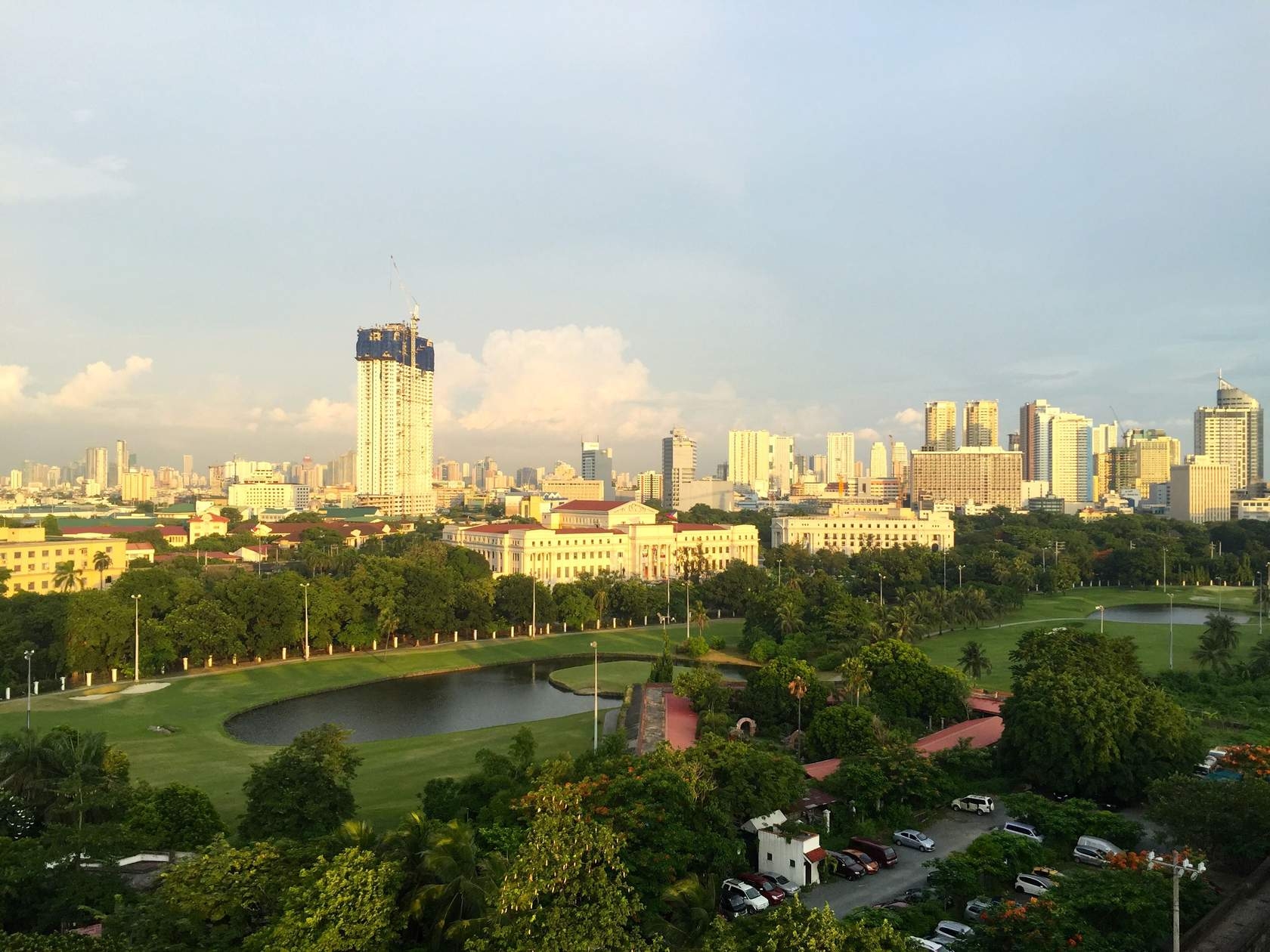
The program begins with a week-long introduction to the Philippine health care system, visits to key exposure sites in Metro Manila and nearby areas. The remainder of the program will be an immersion in a remote island site as determined by the CFHI Philippines team (NOTE: not all remote island sites are available at all times; CFHI determines placement sites). For a 2-week program, participants will be in Manila approximately 3 days. Participants may be placed on Alabat island, in the province of Quezon; on Lubang Island, on Marinduque Island, on Tablas Island, or on Tingloy Island. All placements unless otherwise arranged will be with the Rural Health Unit. Learn more about program locations under the “A Day in The Life” tab.

For the first week and towards the end of the program, participants stay in a 3-star hotel near the bustling city center of Manila. On the remote island sites, participants will find their home away from home in either in a homestay, an apartment, or dorm-type lodging. All housing screened by CFHI Local Coordinators in the Philippines and following CFHI’s health and safety guidelines.
Going beyond mere lodging, staying in a local housing provides a unique opportunity to learn about the local culture. Accommodations include two meals per day. Accommodations may vary depending on the number and location of students throughout the month. At the welcome orientation, participants will be instructed on culture and work etiquette to have the best experience in both the home and the health settings.
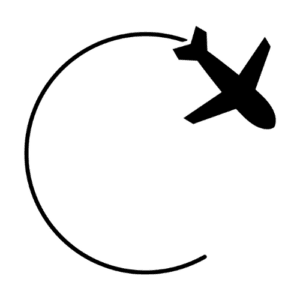
Participants should arrive in Manila, Philippines on the program start date and will be picked up from the airport by a CFHI representative and taken to the on-site lodging. The first official activity of the program is an Orientation Meeting followed by a Welcome Dinner that takes place on the Sunday after arrival.
No visa is required for U.S. citizens for stays 30 days or less. For stays of 30 days or more you must apply for a 59 day visa at the Philippine Embassy or Consulate prior to arrival. More information and specific instructions on visa applications will be provided by CFHI after acceptance into the program.

What’s Included
CFHI Program fees include the majority of your on the ground costs. As a nonprofit, CFHI strives to keep fees low and offers fundraising opportunities, scholarships and discounts.
Pre-Departure Support
- Program advising and support via email, phone, and web meeting from CFHI’s Central Leadership team
- Detailed online Pre-Departure Training that includes modules on program logistics (flights, visas, immunizations, and more), intercultural learning, introduction to health realities at your program site, and much more
On-Site Services
- Airport pick-up upon arrival and transportation with a local CFHI representative to your program lodging
- Welcome orientation 1-2 days after arrival covering safety, transportation, and other logistics
- CFHI Local Team that provides instruction, logistical support, and 24/7 emergency response
- Meetings and lectures on local healthcare system, socio-economic determinants of health and current cultural/historical topics.
- Placement and coordination of clinical and any public health activities (if relevant)
- Accommodation and two meals per day
- Local cell phone or support obtaining a local SIM card
- International emergency medical and evacuation insurance (unless waived by your university or institution)
Post-Return Resources
- Opportunities to engage as a CFHI Alumni Ambassador, reviewing scholarship applications, speaking on CFHI panels, and more
- Access to CFHI alumni-only social media group/s featuring news and career opportunities related to Global Health
- CFHI alumni newsletter highlighting events, professional development opportunities, resources, and ways to stay involved
Uniquely, 60% or more of CFHI student program fees go directly to the communities they will be visiting, benefiting the local economy at large.
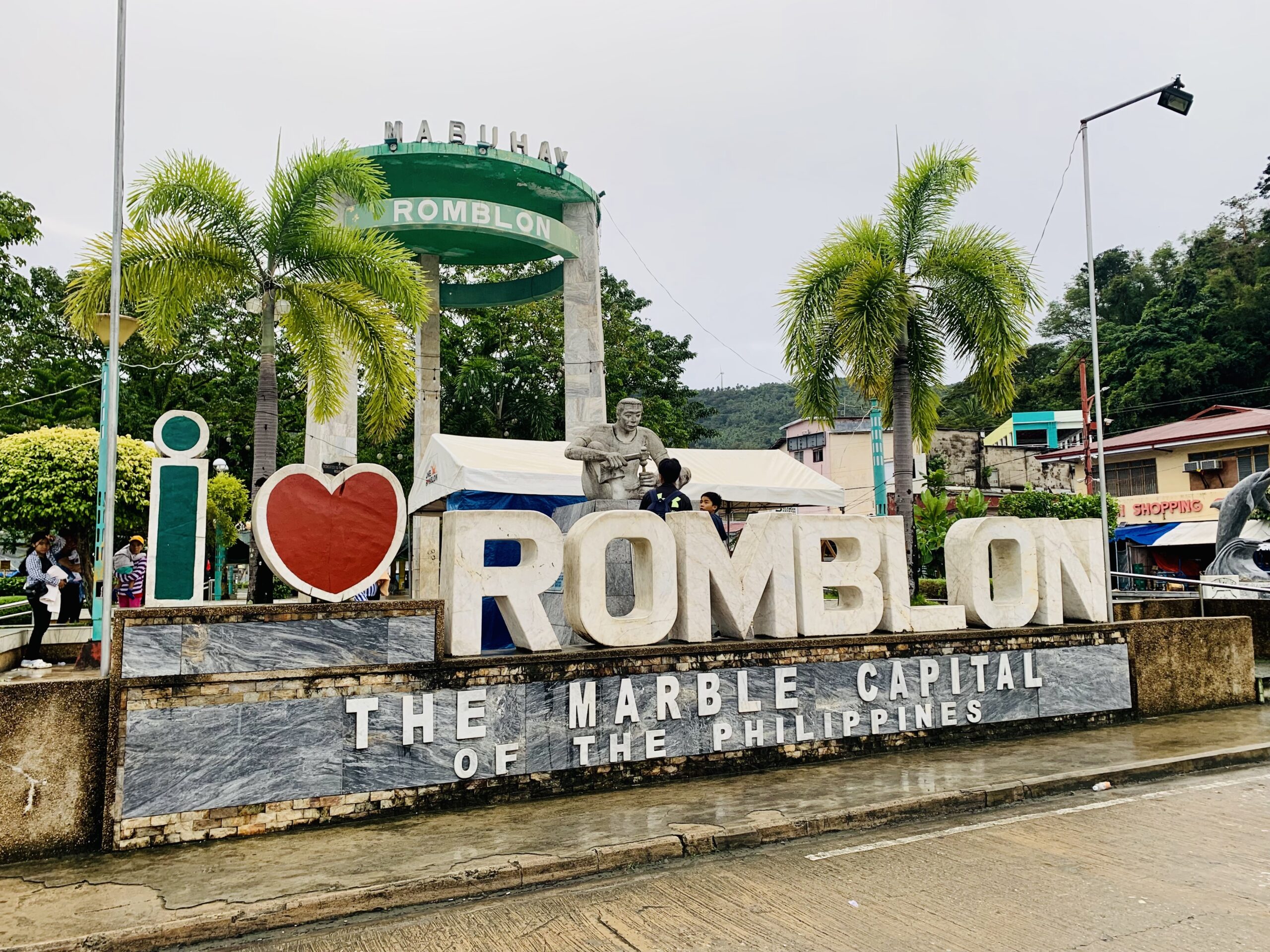
Metro Manila – Metro Manila, with its 16 cities, is a crowded, fast-paced environment with much to offer. The city of Manila has a reputation for being a concrete jungle where you can eat, drink and shop 24 hours a day. Explore Intramuros, the old walled city showcasing the preserved architecture during the Spanish era and watch the world famous Manila Bay sunset. The nearby business districts of Makati and Taguig, with tall skyscrapers and fine restaurants, are known for their cosmopolitan and upscale vibe. Pasay City, where the international airport is located, boasts of one of the largest malls in the world, the Mall of Asia, and various gaming and entertainment establishments. Embrace all that the rest of the metropolis has to offer while immersing yourself in the vibrant Filipino culture and mouth-watering gastronomic delights.
Remote Island Sites – Unlike Metro Manila, remote islands offer a much slower paced life. However, these islands are excellent locations to appreciate the Philippines’ natural beauty and biodiversity. Enjoy picnics by the beach and lazy sun-kissed afternoons. Explore the islands through hikes to hidden waterfalls, snorkeling through the crystal clear waters, or visiting the salt water lagoons. Interact with the locals and immerse in the rich culture of the local communities.
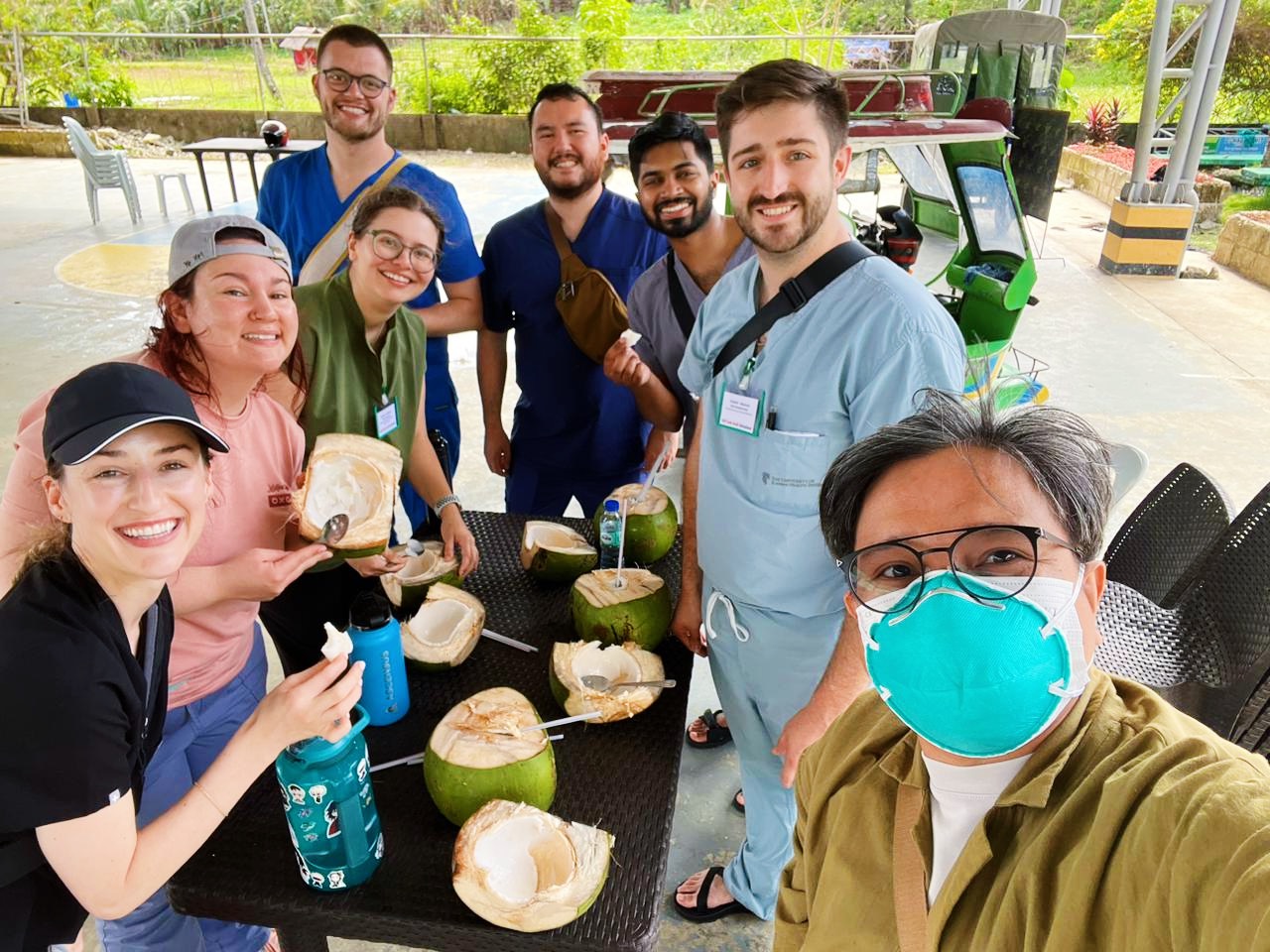
A typical day in a CFHI program is a blend of immersive learning, cultural exploration, and personal reflection. During the orientation days in Manila, students wake up at around 7AM to have breakfast at the hotel. Depending on the day, activities include: interactive sessions, discussions, walking tours, and visits to various health facilities. These activities usually end around 3-5PM. On the remote islands, clinical rotations typically take place for about 6-8 hours per day. The clinical site assignments and schedule are shared by the local team upon arrival. Weekends are free of program-planned activities.
Metro Manila – Also known as the National Capital Region (NCR) of the Philippines, Metro Manila is composed of 16 cities and one municipality, whose overall population is estimated at 12 million. It is considered one of the most densely populated cities in the world. NCR is the center of culture, economy, education and government of the Philippines, which makes it the country’s hub for finance and commerce.
Alabat Island – Alabat Island is located in the province of Quezon and is one of the program’s original sites. It is located about 250 km (155 miles) southeast of Metro Manila, situated between the Pacific Ocean and Lamon Bay. From Metro Manila, Alabat Island is reachable by 6-8 hours land travel plus one hour boat ride. It is composed of three municipalities or towns: Perez in the north, Alabat in the middle and Quezon in the south. Participants who will be assigned to Alabat Island will be specifically placed in the town of Alabat, working closely with the Rural Health Unit staff.
Lubang Island – Lubang Island is located 183 km (75 miles) southwest from Metro Manila. It is separated from the main island of Mindoro and Luzon by the Verde Island passage. The island is divided into two municipalities: Lubang and Looc. The Municipality of Lubang is one of the eleven municipalities of Occidental Mindoro and it occupies the northeastern part of Lubang Island, including the island of Cabra. From Metro Manila, Lubang is reachable by a 3-hour van ride to Nasugbu Port, Batangas, followed by a 3-hour boat ride to Tilik Port, Lubang. Participants who will be assigned to Lubang will be placed within the Poblacion, working closely with the Rural Health Unit staff.
Marinduque Island – The town of Torrijos is the primary immersion site in the island province of Marinduque. Located 249 kilometers (156 miles) southeast of Manila, it can be reached via a 45-minute flight from Metro Manila, or a passenger ship from the Port of Lucena City in Quezon Province. Dubbed as the “Heart of the Philippines”, Marinduque is composed of 6 municipalities all reachable through a three-hour trip around the island via the Marinduque Circumferential Road. Participants who will be assigned in Marinduque will be specifically placed in the municipality of Torrijos, working closely with its Rural Health Unit staff.
Tablas Island – Tablas Island is about 367 km (228 miles) south of Metro Manila, situated between Tablas Strait and Sibuyan Sea near the geographic center of the Philippines. It is the largest island among the 7 islands that comprise the province of Romblon. From Metro Manila, Tablas Island is reachable by 2-3 hours bus trip to the Port of Batangas, followed by an 8-10 hours travel by passenger ship to the Port of Odiongan. It can also be reached via a one-hour plane ride from Manila. Participants who will be assigned to Tablas Island will be specifically placed in the town of Alcantara, working closely with the Rural Health Unit staff.
Tingloy Island – The radish-shaped 5th class island Municipality of Tingloy is situated about 2 nautical miles off the southwest coast of Batangas mainland, 11.2 nautical miles from Batangas City and about a 3 hour drive from Manila, including a 45 minute boat ride through ferry boats from the ports (Anilao/Talaga) of Mabini, Batangas. It is the only island municipality in the Province of Batangas and a part of the 2nd District. It consists of 15 barangays that include shoreline areas, lowland plains and valleys and rugged hills and sloping mountains. Participants assigned in Tingloy will be specifically placed in the whole municipality and will be working closely with the Rural Health Unit staff.
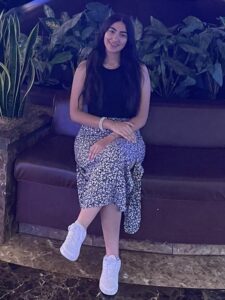 Hello! My name is Joys William.
Hello! My name is Joys William.
I am a junior at Elizabethtown College majoring in Biology (Pre-Med) and minoring in Psychology. I enjoy crocheting, reading, traveling, and spending time with family and friends. I attended the Global Health in the Philippines program in July 2024, and I found the experience extraordinary—not only did it help me grow as a future physician, but also as a person. The Philippines will always hold a special place in my heart, and I love serving as an alumni advisor to support others in their learning experiences.
Hello! My name is Andrea Pangan. Full bio coming soon!
Clinical Rotations & Public Health Placements
Meet the Local Team
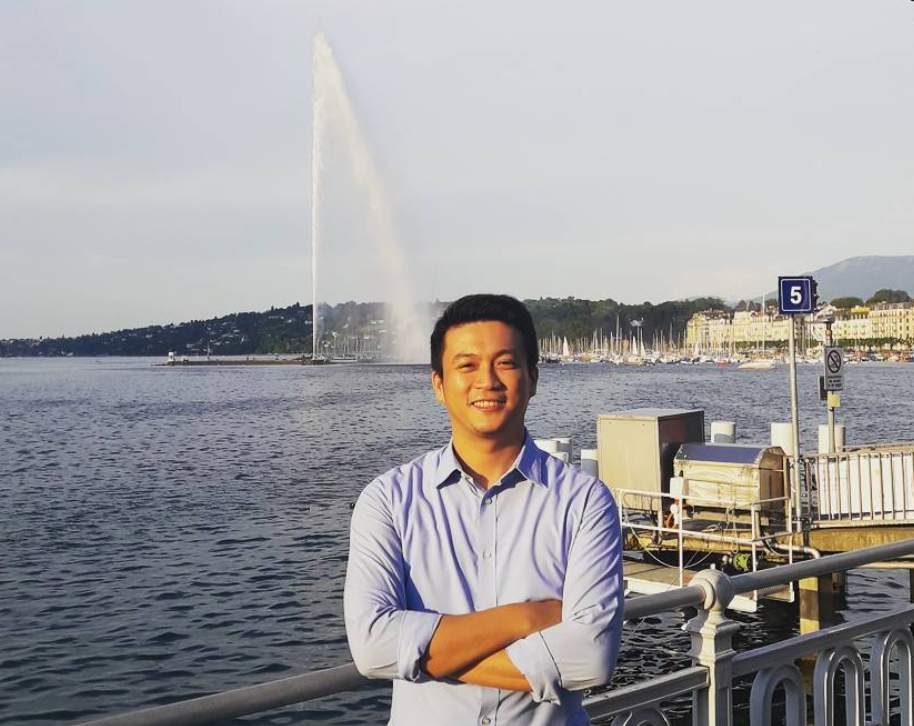
Dr. Joel Buenaventura MD, MPH – CFHI Philippines Country Director
Dr. Buenaventura is a young and passionate doctor who is involved in global health diplomacy and in issues addressing health disparities and inequities. In 2004, Dr. Buenaventura graduated with honors at the University of Santo Tomas Faculty of Medicine and Surgery. The following year, he completed his postgraduate internship at the University of the Philippines General Hospital. In 2011, he earned a Master’s in Public Health at Boston University, with a dual concentration in International Health and Heath Policy and Management and bestowed the John Snow, Inc. Award in International Health, after doing prestigious internships at the World Health Organization Headquarters in Geneva, Switzerland and the Médecins Sans Frontières (or Doctors Without Borders) US Office in New York.
He has served as a Doctor-to-the Barrio, with 7 years of grassroots experience as a rural health physician and later as a Municipal Health Officer in a poor, sixth class, remote island, serving as the only doctor in a town of approximately 10,000 people. Dr. Buenaventura currently serves as the Chief Health Program Officer for the Department of Health-Philippines, with a focus on alignment of international health cooperation to local health system needs. Altogether, his valuable education and experience with global health and medicine made him a recipient of various grants and scholarships recognizing his leadership skills and academic excellence.
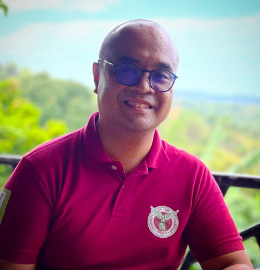
Dr. Paolo Victor Medina, MD – CFHI Local Medical Director
Dr. Medina is a Community Medicine and Primary Health Care practitioner with more than five years of experience in local health systems development as the Municipal Health Officer of the island municipality of Quezon, from 2009 to 2014. Since 2015, he has taught at his alma mater, the University of the Philippines (UP) College of Medicine, as an Assistant Professor for Community Medicine and is presently pursuing his Master in Health Professions Education from the National Teachers Training Center for the Health Professions in UP Manila. In his first year of teaching, he was awarded the UP Medical Alumni Society Outstanding Teacher Award for Clinical Clerks for AY 2015-2016.
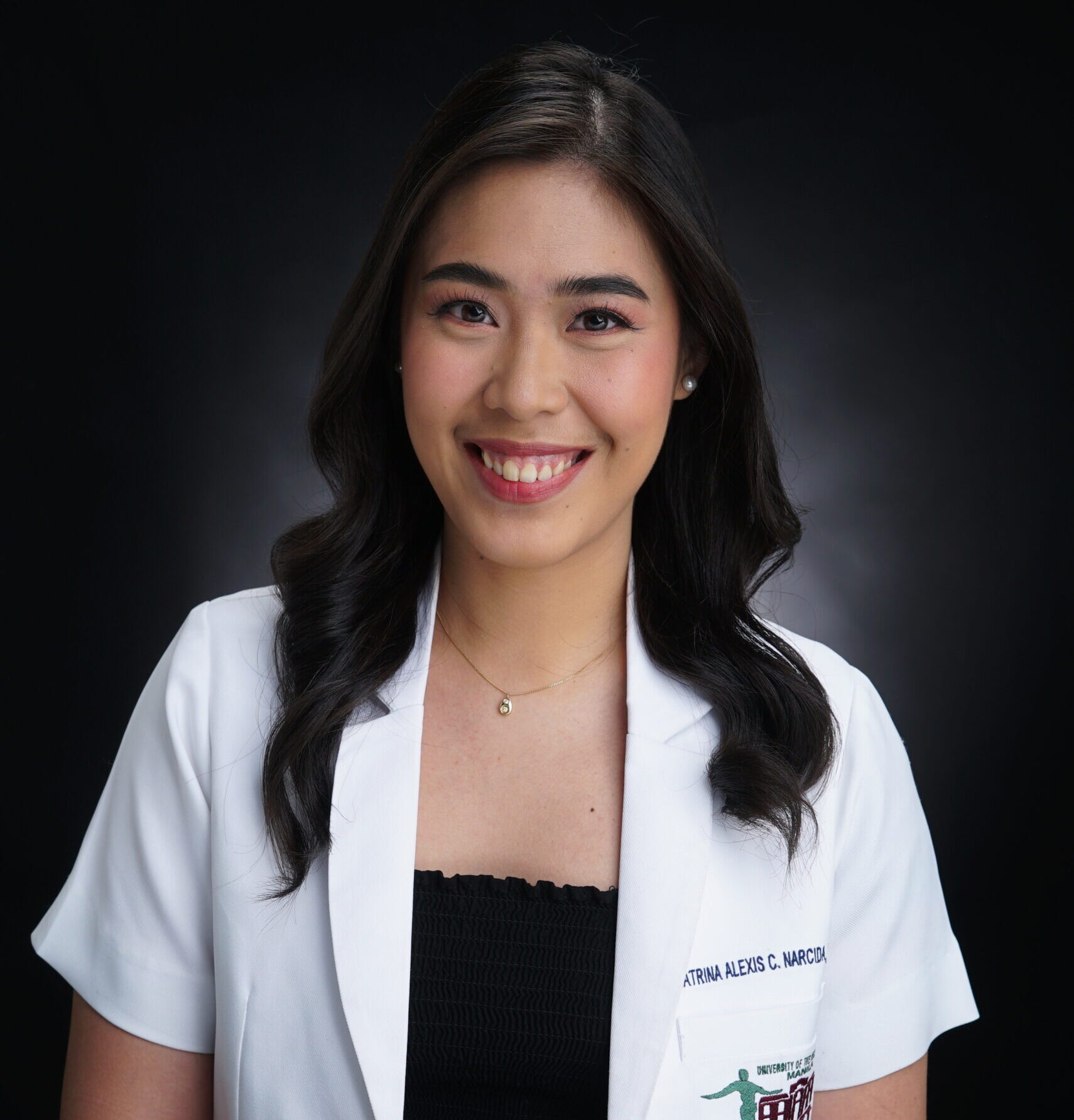
Dr. Katrina Alexis C. Narcida - Local Coordinator (Metro Manila)
Dr. Narcida is a graduate of the Regionalization Program of the University of the Philippines – College of Medicine. She was born and raised in the province of Negros Occidental in the Visayas region until she moved to Manila to pursue her college education. She previously worked as a pediatric speech and language pathologist and a faculty member of the Department of Speech Pathology at the University of the Philippines-Manila. She then completed her medical degree at the same university and graduated from her internship program at Philippine General Hospital last 2024. She currently works as a general physician in health clinics in the Metro Manila area.
This CFHI program is ideal for participants who are 19 years of age or older, who have an interest in fields related to primary health care, maternal & reproductive health, communicable & non-communicable diseases, and/or public health. You do not need to be a student to be eligible for this program; mid-career professionals, GAP year learners, and others are also welcome. This program will provide an in-depth overview of primary health care, maternal & reproductive health, communicable & non-communicable diseases, and/or public health in the Philippines through rotations within various health centers and organizations in the Philippines. To confirm your eligibility, please read CFHI’s general eligibility requirements.
The Sustainable Development Goals are a global roadmap set forth by the United Nations General Assembly to end poverty, protect the planet, and ensure the well-being of all individuals by the year 2030. This program highlights the following SDGs:
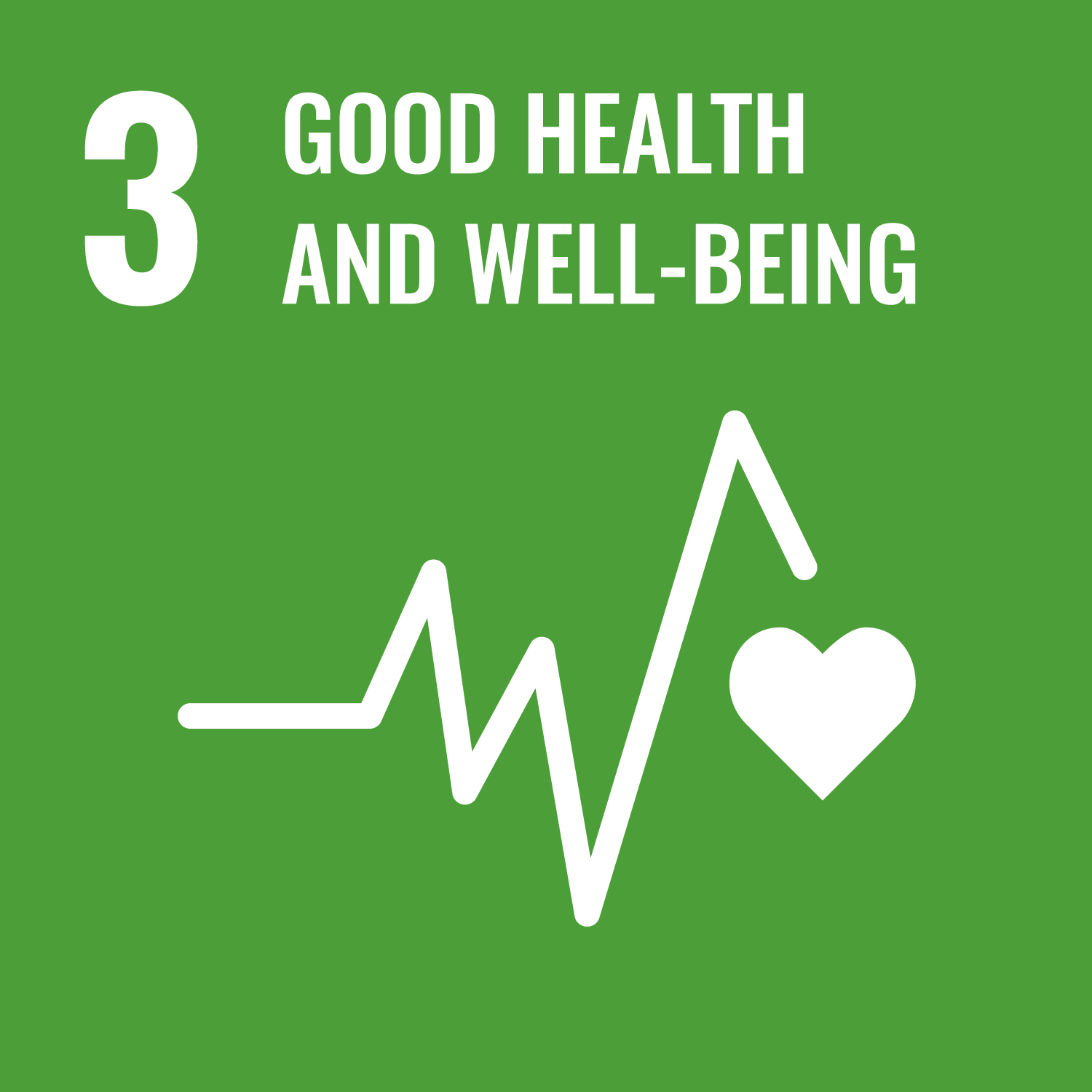
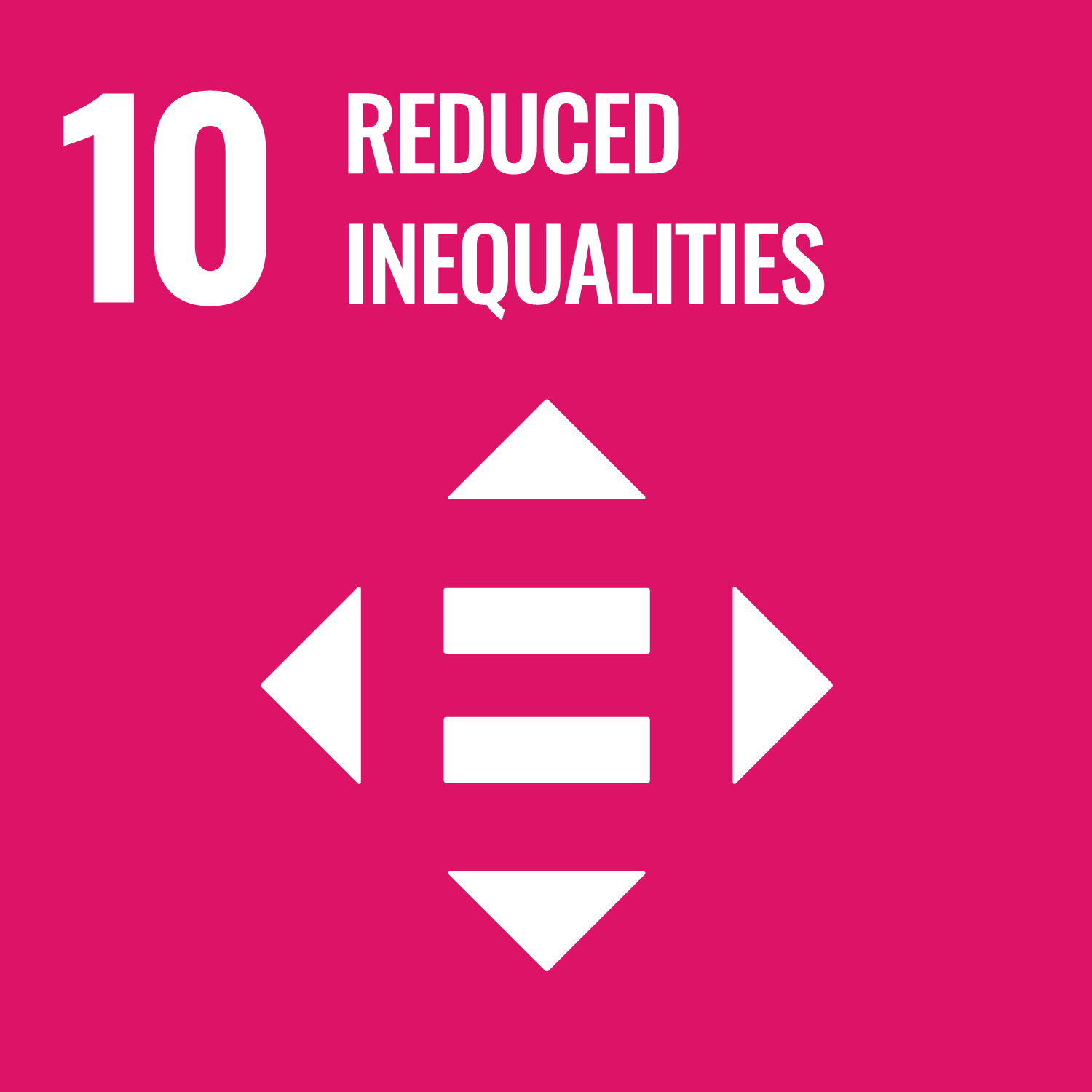
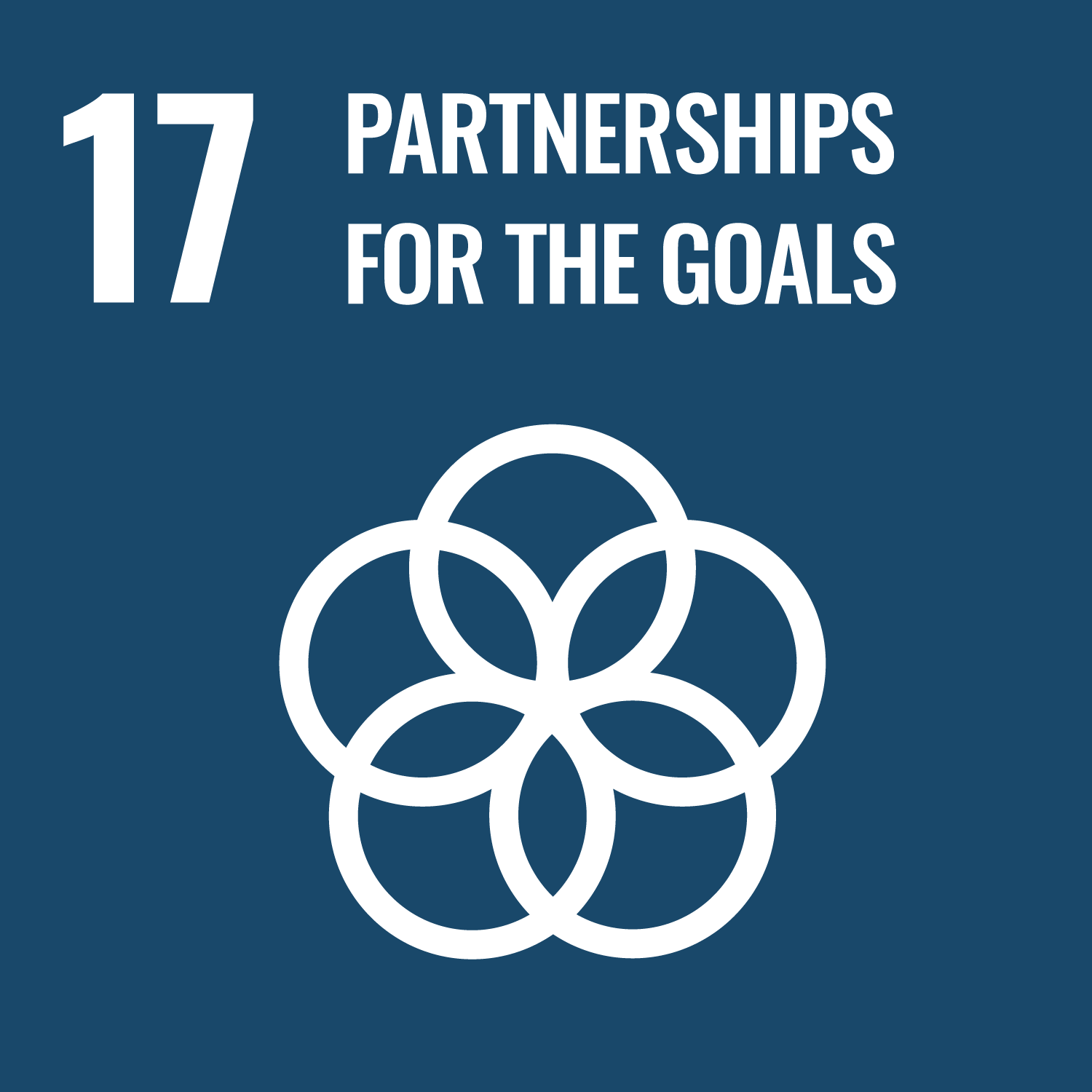
Friends of the Philippines Scholarship Fund
Launching in 2025, the Friends of the Philippines Scholarship Fund will provide Global Health trainees who have a connection to the Philippines with scholarships for CFHI’s long-standing Global Health in the Philippines program.
How to Apply
Create profile
Submit application
Hear back from CFHI team
Complete pre-departure training and requirements



Let The World Change You
